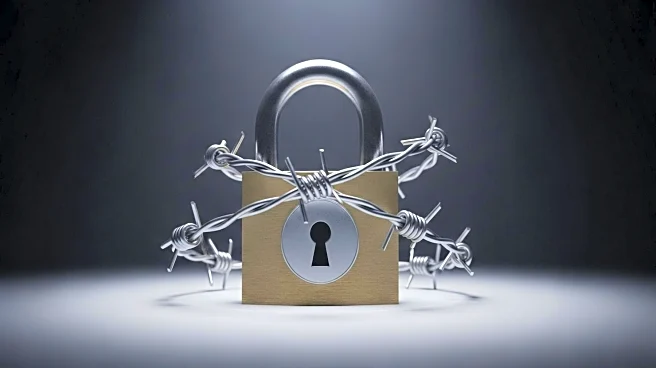What's Happening?
Hamas has issued a directive to residents in Gaza, instructing them not to publish any details regarding the transfer of hostages. This notice warns that sharing information about the release operation could lead to a 'dangerous security breach.' The directive comes in the wake of a ceasefire agreement between Israel and Hamas, which aims to halt ongoing hostilities. The ceasefire marks a new phase in the conflict, focusing on post-war recovery and humanitarian efforts. The situation remains tense as both sides navigate the terms of the ceasefire, with Hamas emphasizing the importance of maintaining operational security during sensitive negotiations.
Why It's Important?
The directive from Hamas highlights the fragile nature of the ceasefire and the complexities involved in hostage negotiations. The security concerns underscore the delicate balance required to maintain peace and prevent further escalation. This development is significant for U.S. foreign policy, as the U.S. has historically played a role in mediating Middle Eastern conflicts. The situation in Gaza could impact U.S. diplomatic relations and influence future peace efforts in the region. Additionally, the humanitarian aspect of the ceasefire, including the shutdown of food distribution sites, poses challenges for displaced Palestinians and international aid organizations.
What's Next?
As the ceasefire progresses, stakeholders will closely monitor the implementation of its terms, including the safe transfer of hostages. The international community, including the U.S., may increase diplomatic efforts to ensure compliance and support humanitarian initiatives. Potential reactions from political leaders and civil society groups could shape the future of peace negotiations. The focus will likely shift to rebuilding efforts and addressing the needs of displaced populations, requiring coordinated efforts from local authorities and international partners.
Beyond the Headlines
The directive to withhold information reflects broader issues of censorship and control within conflict zones. It raises ethical questions about freedom of speech and the role of media in reporting sensitive operations. The long-term implications could affect the transparency of future negotiations and the ability of journalists to cover events in Gaza. This situation also highlights the cultural and legal challenges faced by residents living under the governance of militant groups.










